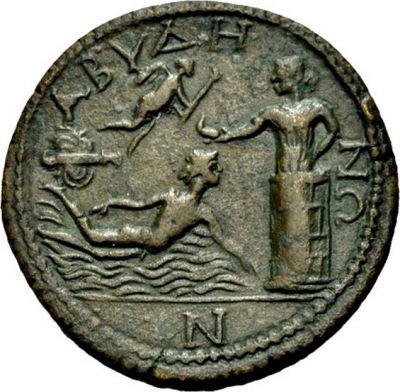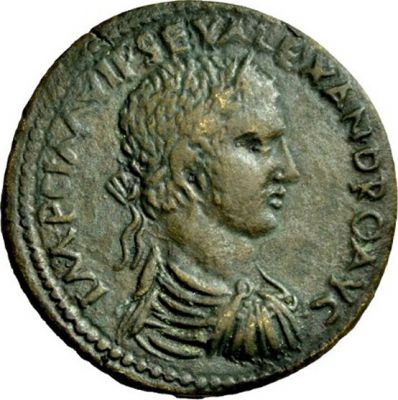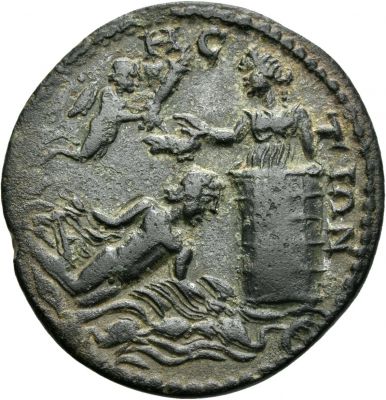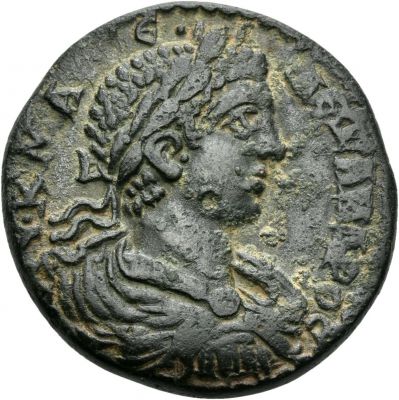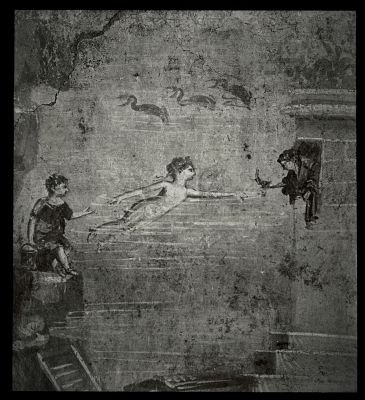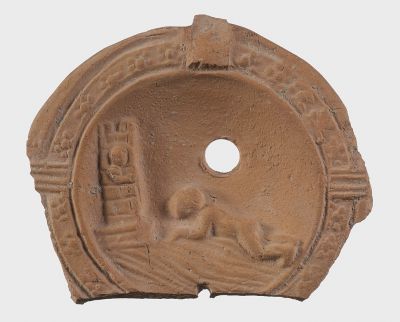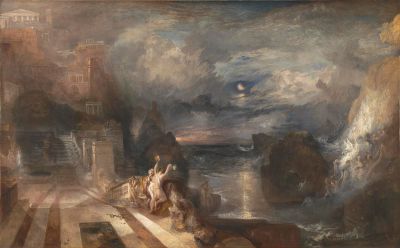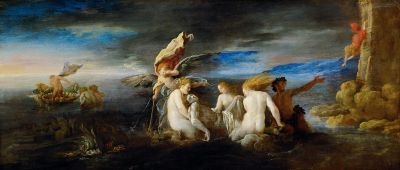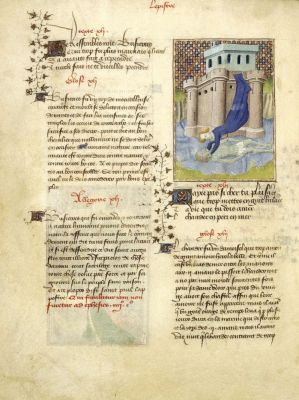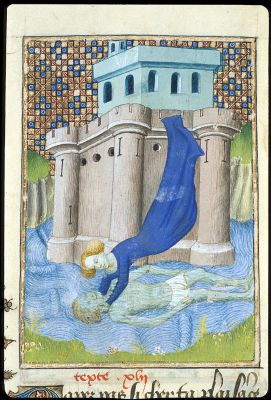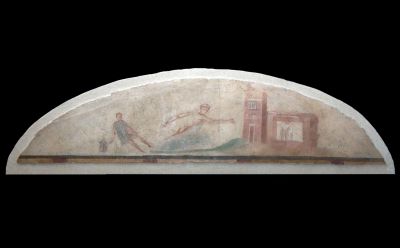
Hero and Leander were two young people who lived on opposite sides of the Hellespont, trapped in a forbidden love. According to Musaeus, Hero was a priestess of Aphrodite who lived in an isolated tower by the sea at Sestos, on the Thracian shore of the Hellespont. Leander lived across the strait at Abydos, on the Asian shore. The pair met and fell in love at Sestos, at a festival in honour of Aphrodite, but Hero’s position meant that she was not allowed to marry. Musaeus says that Leander asked her to marry him, and Hero accepted, but on condition that their marriage remain secret, because her parents were against her marrying anyone. And so every night Leander swam across the Hellespont, guided by a lamp which Hero placed at the top of her house, and returned to Abydos in the morning. In Ovid’s Heroines, the young couple exchanged letters in which Leander complained that sometimes stormy seas prevented him from joining his beloved, while Hero expressed her impatience but also urged him only to come when the sea was calm. One night, however, Leander braved a storm to swim across the strrait. But the wind blew out the lamp and he could not find the shore; swept away by a strong current, he drowned. The next morning Hero saw his lifeless body in the water and, not wanting to live without him, threw herself off her tower into the sea. In another version of the story, she hanged herself in her grief.


